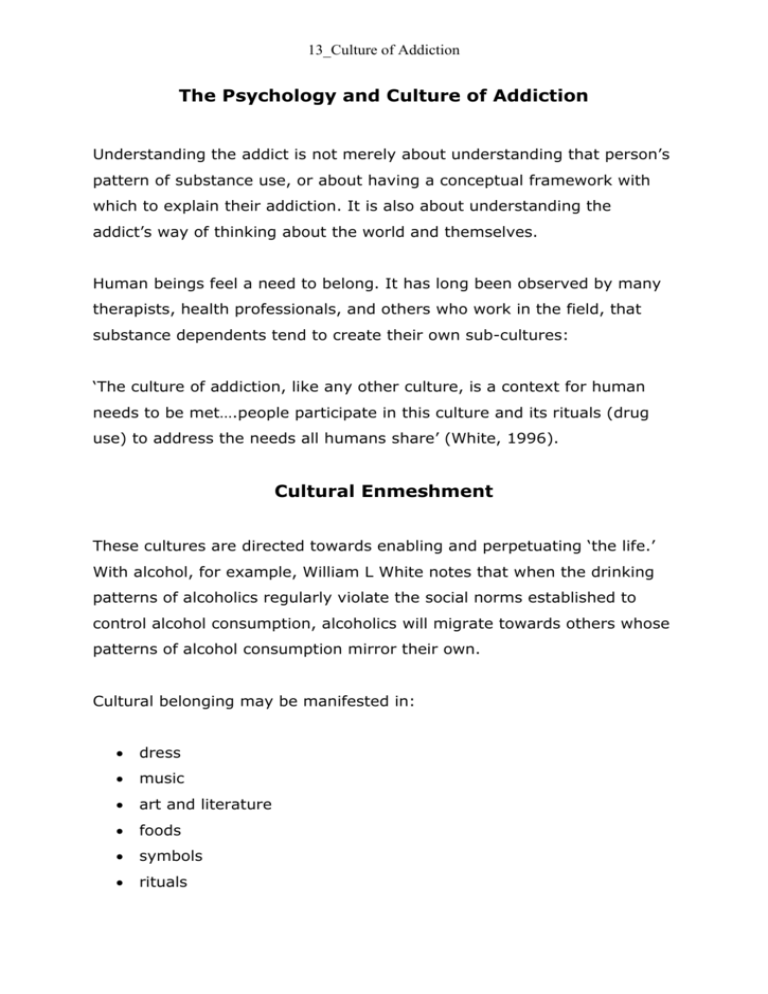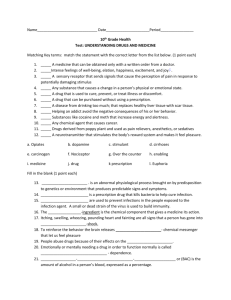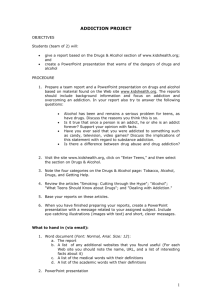Culture of Addiction
advertisement

13_Culture of Addiction The Psychology and Culture of Addiction Understanding the addict is not merely about understanding that person’s pattern of substance use, or about having a conceptual framework with which to explain their addiction. It is also about understanding the addict’s way of thinking about the world and themselves. Human beings feel a need to belong. It has long been observed by many therapists, health professionals, and others who work in the field, that substance dependents tend to create their own sub-cultures: ‘The culture of addiction, like any other culture, is a context for human needs to be met….people participate in this culture and its rituals (drug use) to address the needs all humans share’ (White, 1996). Cultural Enmeshment These cultures are directed towards enabling and perpetuating ‘the life.’ With alcohol, for example, William L White notes that when the drinking patterns of alcoholics regularly violate the social norms established to control alcohol consumption, alcoholics will migrate towards others whose patterns of alcohol consumption mirror their own. Cultural belonging may be manifested in: dress music art and literature foods symbols rituals 13_Culture of Addiction mythology cognitions, behaviours, and language In other words, the symptoms of the individual pathology of addiction are organized into group norms that govern member interactions. These serve to support the minimization, projection, intellectualization, rationalization, and grandiosity that collectively permit such individuals to deny their addiction (and associated problems).











